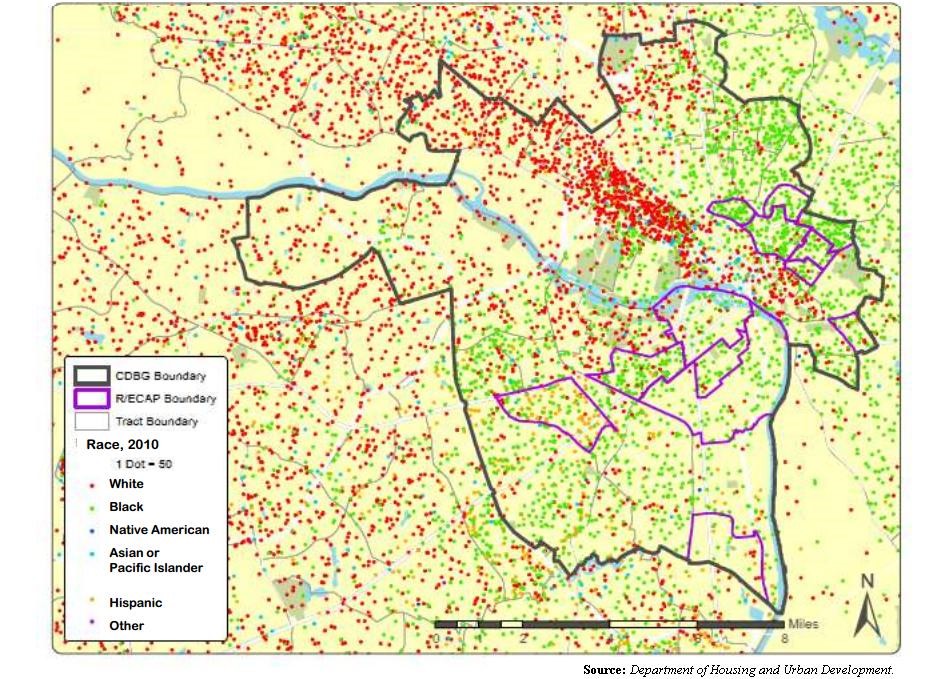That was the vote in the U.S. Senate on an amendment to the Transportation and Housing and Urban Development appropriations bill that blocks funds from being “used by the Department of Housing and Urban Development to direct a grantee to undertake specific changes to existing zoning laws as part of carrying out the final rule entitled ‘Affirmatively Furthering Fair Housing’ or the notice entitled ‘Affirmatively Furthering Fair Housing Assessment Tool.’”
While that is definitely not the language by Sen. Mike Lee (R-Utah) and supported by Sen. Richard Shelby (R-Ala.), Americans for Limited Government and others, which would have completely defunded all implementation of the regulation, what the Senate did was not altogether completely horrible either.
The HUD regulation in question, “Affirmatively Furthering Fair Housing” (AFFH) currently conditions $3 billion of yearly community development block grants on 1,200 recipient cities and counties rezoning neighborhoods along income and racial guidelines.
Specifically, it does so by directing municipalities “to examine relevant factors, such as zoning and other land-use practices that are likely contributors to fair housing concerns, and take appropriate actions in response” as a condition for receipt of the block grants.
So, it is conceivable that a federal judge could read the language and say it prevents the Department of Housing and Urban Development (HUD) from conditioning the community development block grants on making changes to zoning.
But it may not do so completely.
As Shelby noted on May 19 on the Senate floor the flaws of the Senate-passed amendment: “Make no mistake, the so-called Affirmatively Furthering Fair Housing rule will likely heavily influence local zoning decisions. However, it does so… indirectly, not through direct action. HUD advertises this fact on its own website where it details how communities will have to submit for approval an assessment of fair housing and that these communities will use the fair housing goals and priorities established in their assessment to inform the investments and other decisions made in their local planning processes.”
“In other words,” Shelby continued, “HUD does not intend to direct any specific zoning requirements. It does, however, Mr. President, intend to significantly influence local zoning decisions by withholding approval of local plans until they meet HUD’s central planning goals. This amendment is not sufficient on its own.”
Meaning the language the Senate passed may only offer false comfort for cities and counties as it may not disarm all of HUD’s conditions for receiving community development block grants.
The Lee amendment for its part was tabled by a Senate vote of 60 to 37. But that is not the end of the story, noted Americans for Limited Government President Rick Manning in a statement.
“One possible pinpoint of light is the Senate including language that restates current law prohibiting the federal government from directly setting zoning policy for municipalities, this time via AFFH,” said Manning adding, “While little more than a political fig leaf amendment, it is Americans for Limited Government’s hope that this limiting language will provide municipalities and counties a small, legal foothold to resist HUD coercion to condition the community development block grants on submission of HUD-approved local zoning plans.”
Manning also noted that the politics on the issue still favor AFFH opponents: “The fact that so many Democrats voted for this amendment proves that the politics of a centrally planned zoning policy by HUD are abysmal. They better hope that the Senate-passed language actually bars HUD from using the community development block grants to set local zoning policy, otherwise the 2018 Senate midterms could prove brutal for those who offered false hope that this vast overreach was being reined in.”
In total, 34 Senate Democrats voted in favor of the premise that HUD should not be setting local zoning rules. That is actually a political victory for those who oppose the HUD overreach. Why? Now they’re married to it.
If the Senate language stands, a few years from now AFFH could prove hard to defend for members who voted to table the Lee amendment. Particularly, the moment a county or city comes back to Congress complaining that HUD is still conditioning community development block grants on rezoning along racial and income guidelines — even with the new Senate-passed language.
But the language is not law yet, and there should be at least two more bites at the apple in terms of crafting a final version of the defund. Companion legislation is moving though the House of Representatives, where action is again expected on an amendment by Rep. Paul Gosar (R-Ariz.) to defund AFFH and the AFFH Assessment Tool completely. That measure has passed the House the past two years.
Now that the Senate has also acted against the regulation, assuming the Gosar amendment passes the House again, that would mean that the House and Senate language would still need to be reconciled. That is why what the Senate did, even as the provision was watered down, was an important first step to blocking the HUD takeover of neighborhoods. Even small victories count, but this fight is not over yet. Stay tuned.
Robert Romano is the senior editor of Americans for Limited Government.







